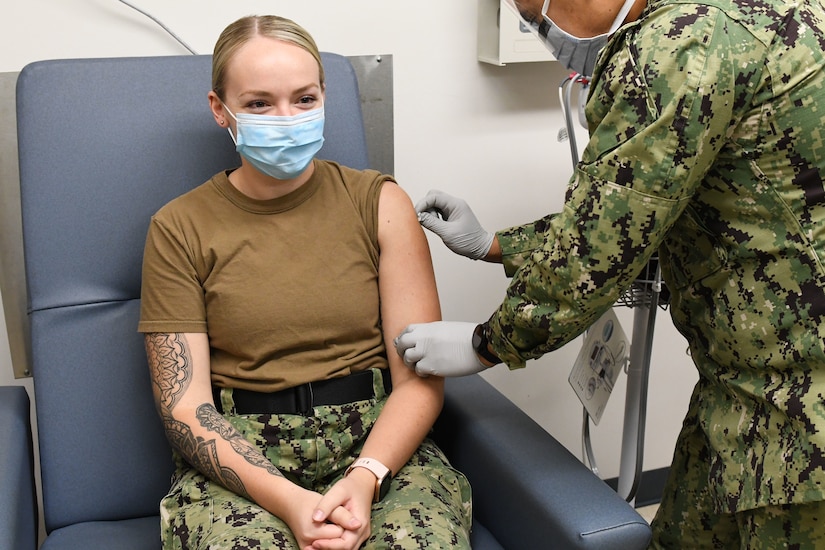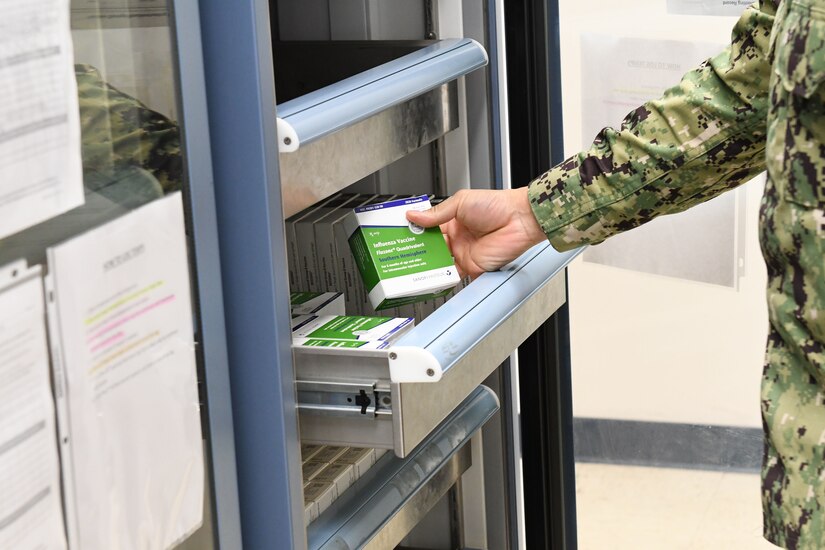Sept. 17, 2020 |
Flu season is coming. In the United States, flu season usually starts in the fall and lasts through the winter. While influenza viruses circulate year-round, most flu activity peaks between December and February, but can last as late as May.
Not only is flu season about to begin, the COVID-19 pandemic is still in full swing, further stressing the importance of the flu vaccine. The vaccine could help reduce the overall impact of contagious respiratory illnesses on the population and decrease the burden on the health care system during the overlapping flu season and COVID-19 pandemic.

While the COVID-19 and influenza viruses are different, symptoms of the two are very similar, making it difficult to differentiate between them based on symptoms alone.
Navy Capt. Lisa Pearse, Navy Region Hawaii public health emergency officer from Navy Medicine Readiness and Training Command Pearl Harbor said, "Both can cause high fevers, body aches and headaches. COVID-19 is more likely to cause a cough and shortness of breath, but those symptoms could also occur with influenza. Lab testing may be required to tell them apart. One specific difference is that only COVID-19 often causes a loss of smell or taste."
While there is no vaccine for COVID-19 yet, the flu shot can help reduce the risk of illness, hospitalization and death from an influenza infection.
"The very best thing you can do to prevent influenza is to get your flu shot," Pearse emphasized.
There may be options to when and where to obtain a flu shot.
"The influenza vaccine is expected to arrive later than usual this year for the Navy, so most of the big flu drives will be delayed slightly and will occur in November/early December, but specific dates will be released soon," Pearse said.

Immunizations clinics may currently look different due to the pandemic. Changes in hours of operations, services, safety precautions and entry requirements at a local military treatment facility are important in planning a visit. For the safety of healthcare personnel and other patients, masks must be worn. Those who have or may have COVID-19, regardless of exhibiting symptoms, are encouraged to postpone their visit to an immunization clinic.
It's uncertain what COVID-19 coupled with the flu season will look like this year. However, there are preventative steps people can take to help protect themselves and their families, while reducing the burden on health care resources. In addition to getting the flu vaccine, the Centers for Disease Control and Prevention recommends staying home when sick, covering both nose and mouth when coughing or sneezing, washing hands, avoiding touching eyes, nose or mouth, cleaning and disinfecting frequently touched surfaces and preserving a strong immune system by getting plenty of sleep, staying active, managing stress, drinking fluids and eating nutritious foods. These everyday actions combined with the vaccine can help slow the spread of contagious respiratory illnesses and prepare people for a joint COVID-19 and flu season to come.
For TRICARE beneficiaries who want to get a flu vaccine before it is available at the clinic, use a TRICARE network participating pharmacy at no cost. To learn about TRICARE coverage and the flu vaccine, click here.
(Macy Hinds is assigned to Naval Health Clinic Hawaii)






No comments:
Post a Comment